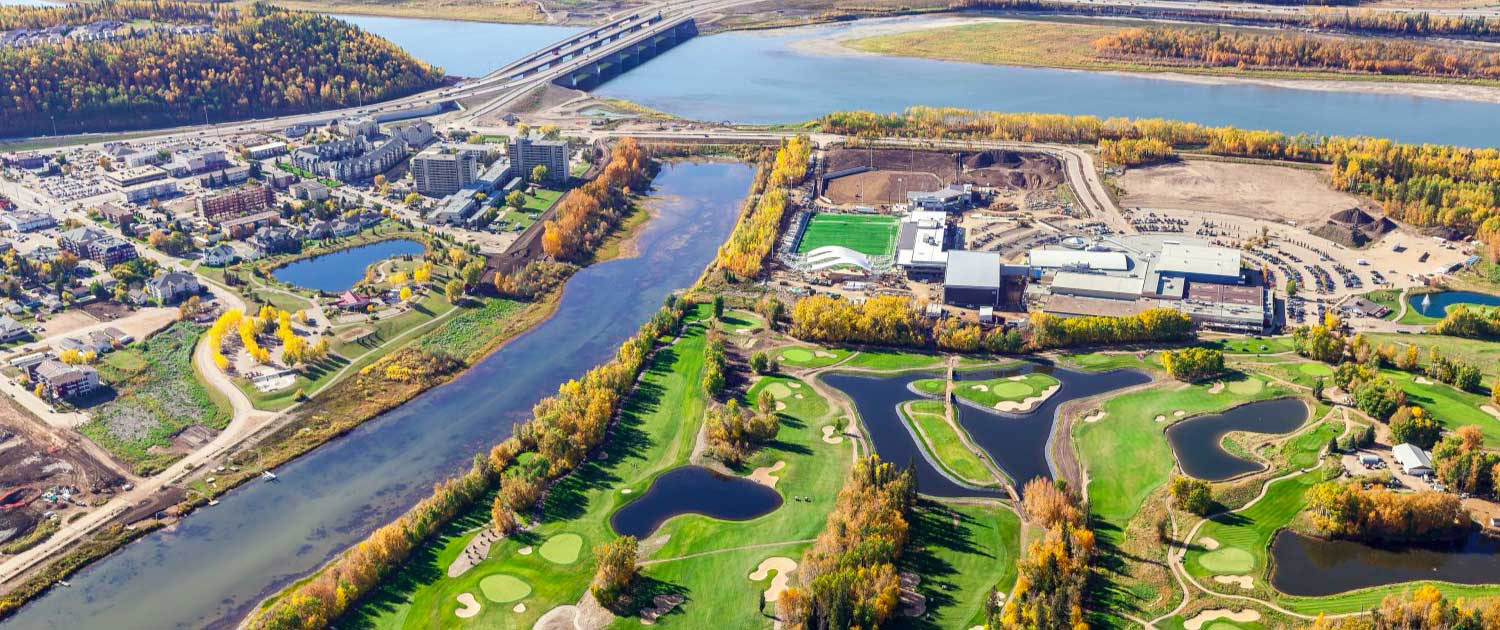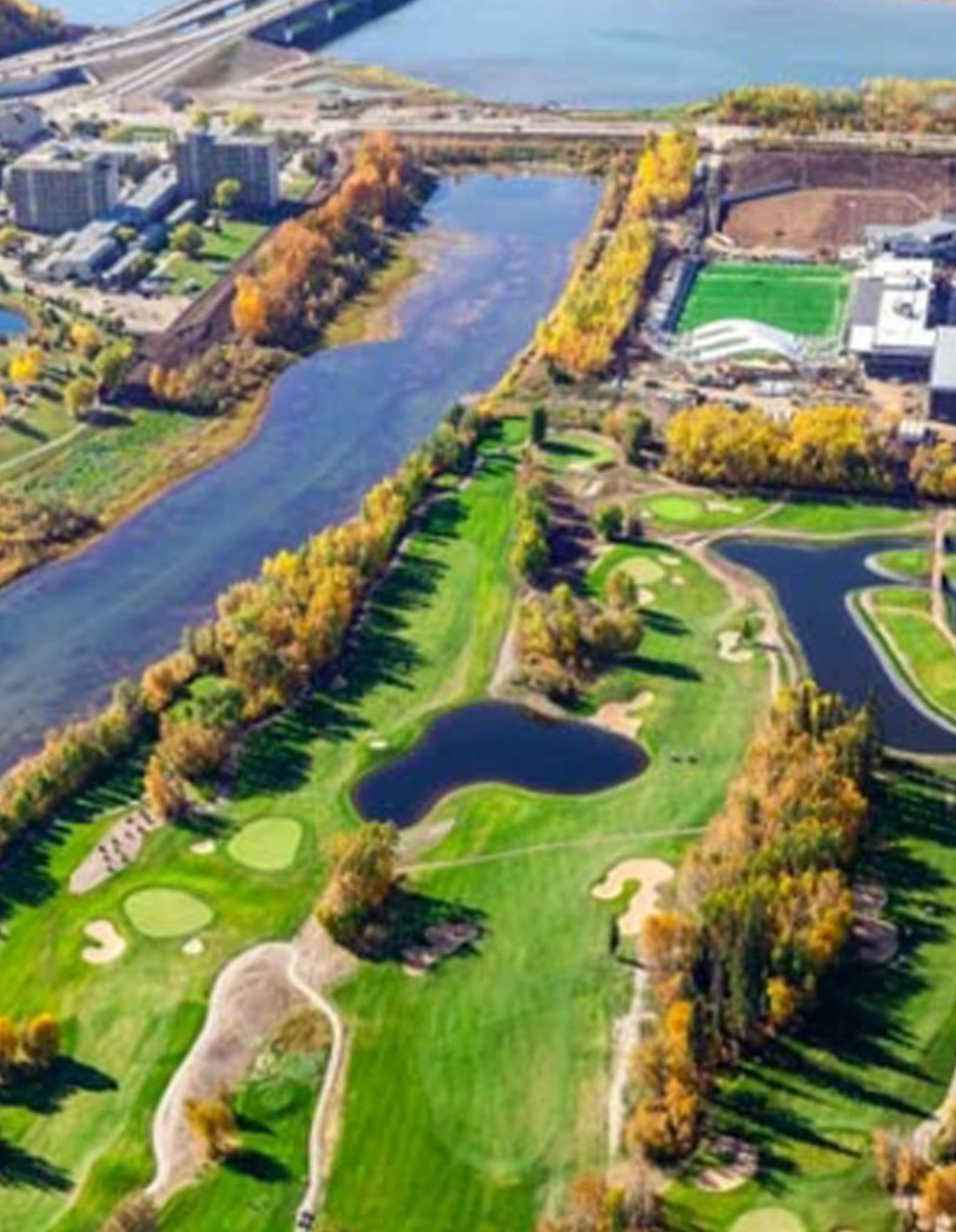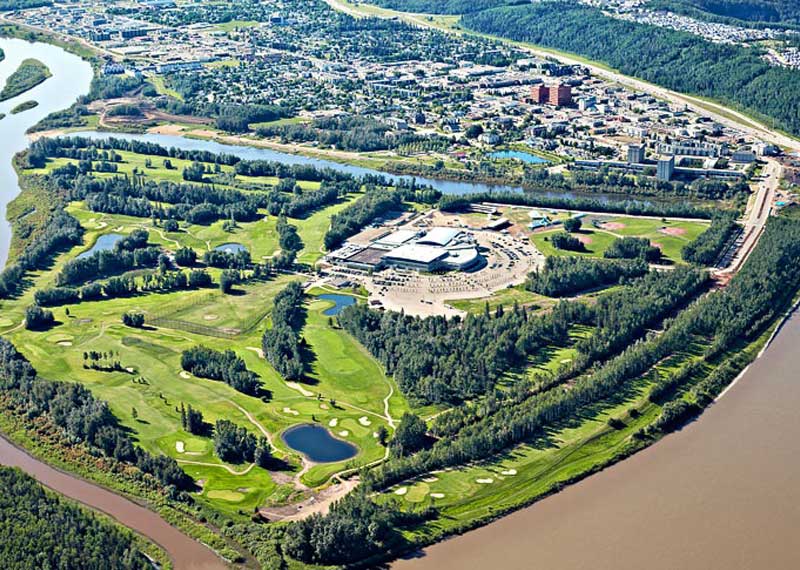MacDonald Island
Canada
Summary
Natural Systems Utilities (NSU) designed, built, and commissioned an innovative water reclamation and heat recovery facility on MacDonald Island, delivering 60,000 gallons per day (227 m³/day) of treatment and reuse capacity. The system includes flow equalization and storage to accommodate fluctuations during major events, ensuring consistent performance.
This project marks a groundbreaking achievement—the first to integrate direct water reuse with a District Energy Sharing System (DESS), setting a new precedent in sustainable infrastructure. NSU provided full turnkey services, including detailed design, permitting, fabrication, installation, and commissioning, supporting long-term resource efficiency and environmental stewardship.
Challenge
MacDonald Island, located just north of Fort McMurray, Alberta, sits at the confluence of the Snye, Athabasca, and Clearwater Rivers—posing unique logistical and infrastructure challenges. The island is home to a large and growing recreational complex that includes multiple ice arenas, curling rinks, a fitness center, a golf course, and an Olympic-sized swimming pool. Recent expansions added new sports stadiums with an 8,000-spectator capacity and a proposed 200-unit hotel, significantly increasing water and wastewater demands.
Previously, all wastewater was conveyed off the island via a gravity sewer crossing the Snye River, where it connected to a lift station and force main in downtown Fort McMurray, eventually reaching a centralized treatment plant on the far side of the Athabasca River. This setup placed a growing strain on the existing collection system, which was already operating near capacity.
Meanwhile, the island’s golf course depended on surface water from the Snye and Clearwater Rivers, drawing an average of 20 million gallons (75,700 m³) of irrigation water each season. Meeting the increased demand from the expanded facilities would have required major—and costly—infrastructure upgrades, including new construction beneath the Snye River.
The challenge was clear: deliver a sustainable, high-capacity water and wastewater solution without the need for extensive new pipelines or disruption to sensitive aquatic environments.
Solution
To address growing demand and infrastructure limitations, a decentralized water treatment and recycling system with integrated heat recovery was implemented on MacDonald Island. This innovative solution reduces indoor potable water use by approximately 30% across the site—and up to 50% for the proposed hotel—while virtually eliminating wastewater discharge to the centralized treatment facility.
The system also enables the golf course to switch entirely to reclaimed water for irrigation, reducing withdrawals from the environmentally sensitive Snye and Clearwater Rivers by up to 100%. This shift is expected to improve stream flow in the Snye River, helping address ongoing ecological concerns related to reduced flow.
In addition to water reuse, the system recovers energy from treated wastewater, which is then used to heat indoor pool facilities. Peak energy recovery from this process is estimated at 240 kW. Combined with heat recovery from the complex’s ice plant refrigeration system—peaking at 263 kW—the integrated system displaces approximately 2,570 MWh of energy annually, avoiding an estimated 605 metric tons of CO₂ equivalent (tCO₂e) greenhouse gas emissions.
Designed for minimal environmental impact, this project aligns with the Regional Municipality of Wood Buffalo’s (RMWB) goals for low-energy, low-emission development. It also supports long-term sustainability by minimizing life cycle costs and serving as a pilot for RMWB’s broader Neighborhood Energy Concept—positioning MacDonald Island as a model for world-class, sustainable community infrastructure.
Highlights
- Energy Recovery
- Reduced Capital Expense
Achievements
By implementing an integrated water reuse and energy recovery system, this project achieved a $3 million reduction in capital costs compared to a conventional wastewater approach. In addition to the upfront savings, the system creates ongoing economic, energy, and environmental benefits—maximizing efficiency while supporting the region’s sustainability goals. The inclusion of energy recovery further enhances long-term value, making this a cost-effective and future-ready solution.







